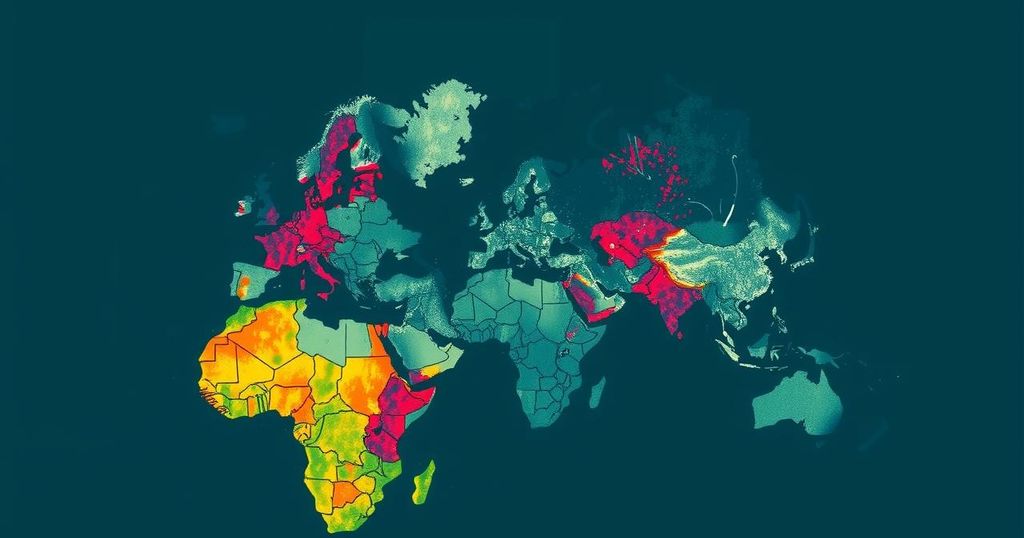COP29, held in Azerbaijan, has encountered significant skepticism from climate experts regarding its ability to address the climate crisis effectively. Prof. Johan Rockström and other leaders have described the summit as ‘no longer fit for purpose,’ critiquing the contradiction between hosting fossil fuel-centric discussions and the conference’s climate objectives. The involvement of fossil fuel lobbyists and calls for stricter regulations have underscored the need for comprehensive reforms to align COP meetings with urgent global climate action.
As the 29th Conference of the Parties (COP29) takes place in Azerbaijan, renowned climate scientist Prof. Johan Rockström expresses deep skepticism regarding its efficacy in combating climate change. Rockström, alongside prominent signatories such as former UN Secretary-General Ban Ki-moon and ex-UN climate chief Christiana Figueres, has characterized the current structure of the conference as outdated and ineffective, particularly given its recent hosting by states heavily reliant on fossil fuel revenues. During the summit, Azerbaijani President Ilham Aliyev endorsed natural gas as a benevolent resource, further complicating the conference’s mission to address climate concerns. Such statements, paired with an approach to leverage diplomatic discussions for oil deals, underline the misalignment between COP’s objectives and the realities of current negotiations. Since its inception in 1995, COP was intended to foster genuine collaboration towards significant action on climate change. However, a pattern has emerged in which petrostates host the summit—most recently, Azerbaijan, where oil and gas significantly contribute to the economy. This has raised critical concerns about the integrity and effectiveness of COP meetings. Attendees and experts herald COP as increasingly performative, with initiatives diluting into mere exhibitions for world leaders instead of propelling essential change. Moreover, the proportion of fossil fuel lobbyists participating in these discussions is troubling. Reports indicate that they made up 3% of attendees at COP28, with Azerbaijan hosting over 1,700 lobbyists. The Kick Big Polluters Out coalition has called for restrictions on such representatives, underscoring the imperative for genuine climate action devoid of commercial interests. Rockström emphasizes the importance of collaboration rather than exclusion of oil-producing states, advocating for a presidency committed to meaningful reform. The ambitious goals set forth in earlier conferences, particularly the legally binding commitments established during COP21 in 2015, are increasingly at risk. As 2024 approaches, projected to be a record-breaking warm year, scientists assert that emissions must decline by approximately 7.5% annually to meet the Paris Agreement’s standards. Rockström laments that ongoing discussions often lack urgency or the willingness to ignite transformative action, noting the challenges posed by gradual, minimally impactful progress over three decades. While COP retains a theoretical framework capable of fostering international cooperation, many involved appear to misconstrue the gravity of climate change and its imminent threats. Rockström advocates for an overhaul of COP proceedings, proposing a streamlined format that facilitates pragmatic, uncompromising discussions focused on urgent action and accountability for unmet commitments. Time is waning, and the summit’s structure must reflect the pressing need for robust climate solutions. Despite his advocacy, Rockström concludes with a note of caution, stating, “I have very low expectations.”
The current COP29 conference, organized in Azerbaijan, signifies a critical moment in the global climate agenda yet has raised significant concerns about its effectiveness due to the fossil fuel-centric tendencies of its host country. The historical context of COP meetings, beginning in 1995, aimed to unite nations in earnest dialogue around climate policy, but the recent trend of hosting by oil-dependent states has cast doubt on the integrity of these discussions. With prominent climate leaders advocating for substantial reforms, the sentiment surrounding COP suggests that it has evolved into a platform that legitimizes inaction rather than fostering essential climate solutions. This entrenched dynamic is highlighted by the juxtaposition of discussions meant to combat climate change alongside negotiations centered on fossil fuel interests.
In summary, COP29 faces substantial criticism for its misalignment with the fundamental goals of combating climate change, primarily influenced by its host nation’s reliance on fossil fuel revenues and the prevalence of lobbyists within the conference. As climate leaders call for urgent reform and accountability, the lack of meaningful progress after decades of discussions raises critical questions about the efficacy of current diplomatic frameworks aimed at addressing global warming. Without significant changes, the future of COP meetings risks being more about performance than impactful environmental change. Prof. Johan Rockström’s restrained optimism serves as a call to action for a transformative agenda that can respond adequately to the climate crisis.
Original Source: www.telegraph.co.uk







